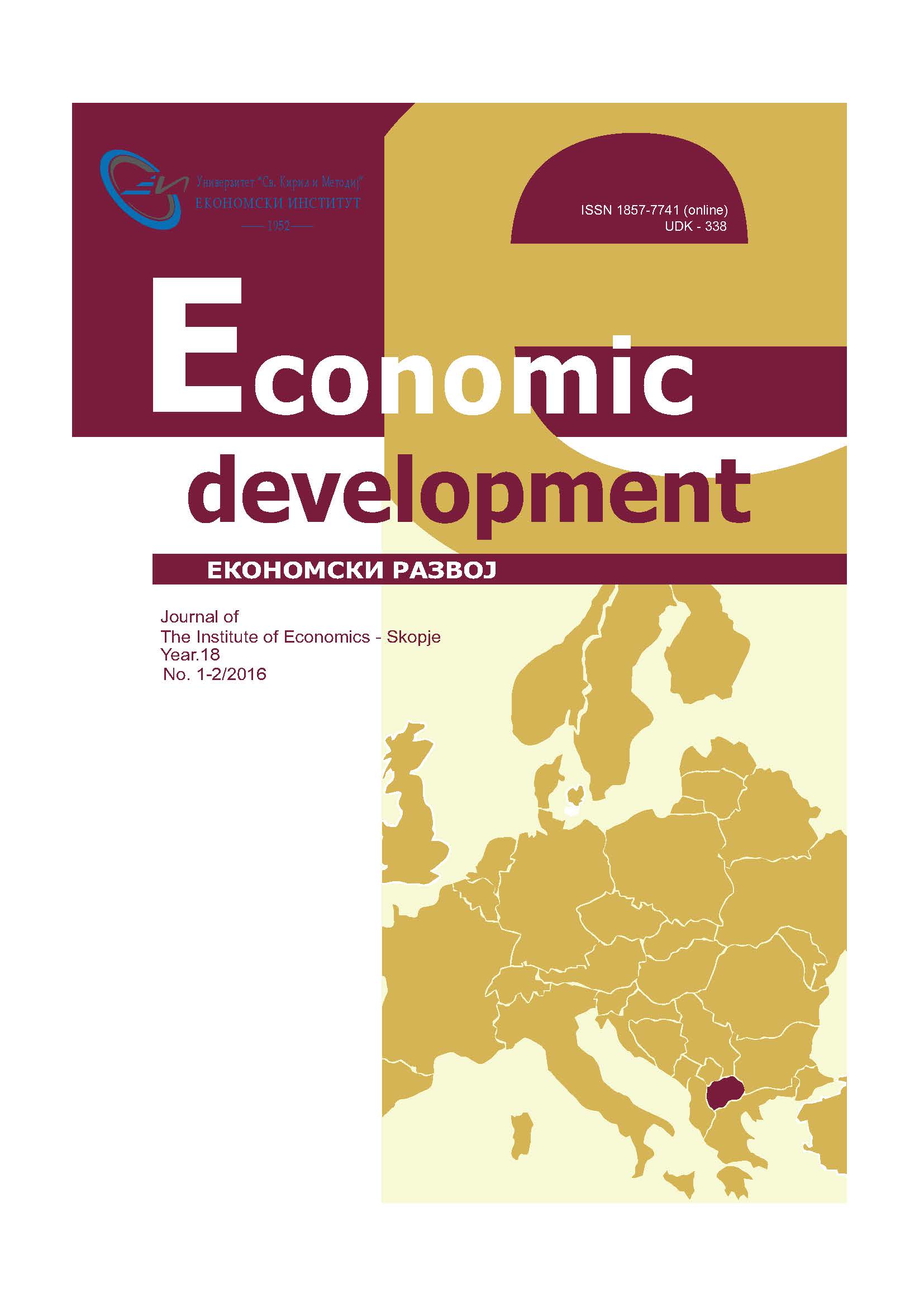Western Balkan countries before and after the great
Recession (2000-2014)
Western Balkan countries before and after the great
Recession (2000-2014)
Author(s): Vesna Georgieva Svrtinov, Diana Boshkovska, Elizabeta Djambaska, Olivera Georgieva TrajkovskaSubject(s): Social Sciences, Economy
Published by: Економски институт - Скопје
Keywords: Western Balkan; economic transition; market economies.
Summary/Abstract: The main goal of this paper is to analyze the economic transition process in the Western Balkans (WB) in the period between 2000-2014. In this period, countries made radical political changes and economic reforms. They opened up to global trade, became increasingly export-oriented and expanded the role of the private sector. They also fulfilled criteria regarding convertibility of the current account, interest rates liberalization, price liberalization and small-scale privatization. However, reforms, such as large-scale privatization, competition policy and governance and enterprise restructuring, have still been delayed. In all WB countries except in Serbia, the inflation rate during this period is low, which is very big achievement taking into account the history of hyperinflation at the beginning of the transition. Furthermore, from the year 2000 onwards, the countries under review also made progress in real convergence, but the gaps in terms of income per capita relative to the euro area, remain large. In comparison with the 90s when the high political risk has been the main barrier for more foreign direct investment inflows, after the year 2000 foreign investors have become increasingly interested for this region.
Journal: Економски Развој - Economic Development
- Issue Year: 18/2016
- Issue No: 1-2
- Page Range: 141-156
- Page Count: 15
- Language: English

